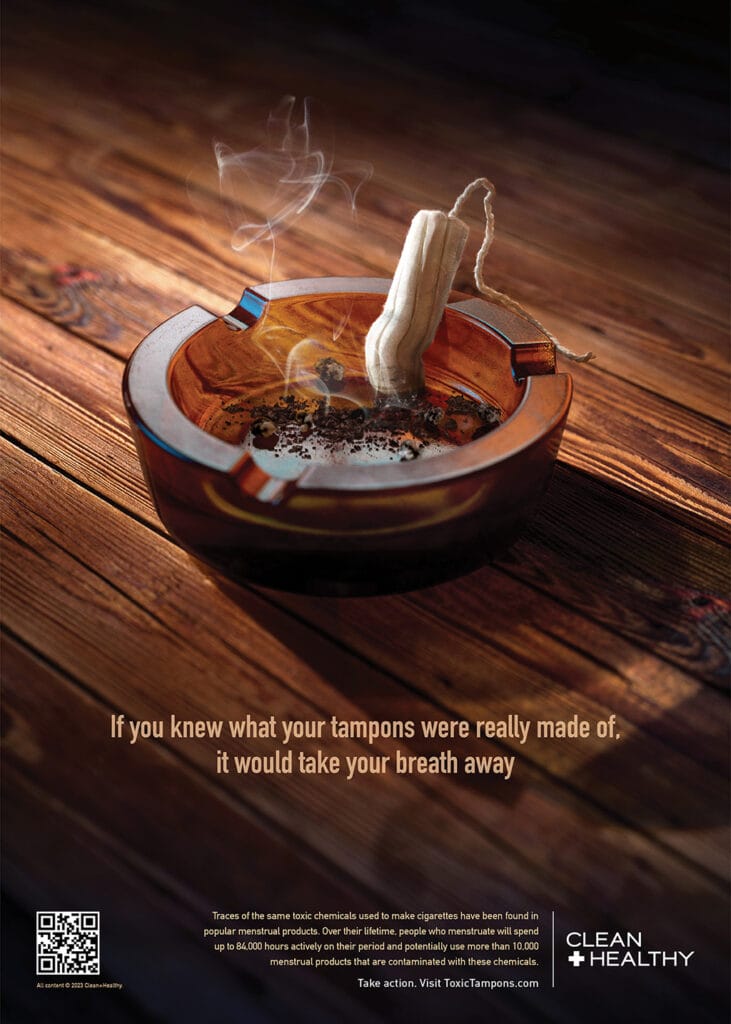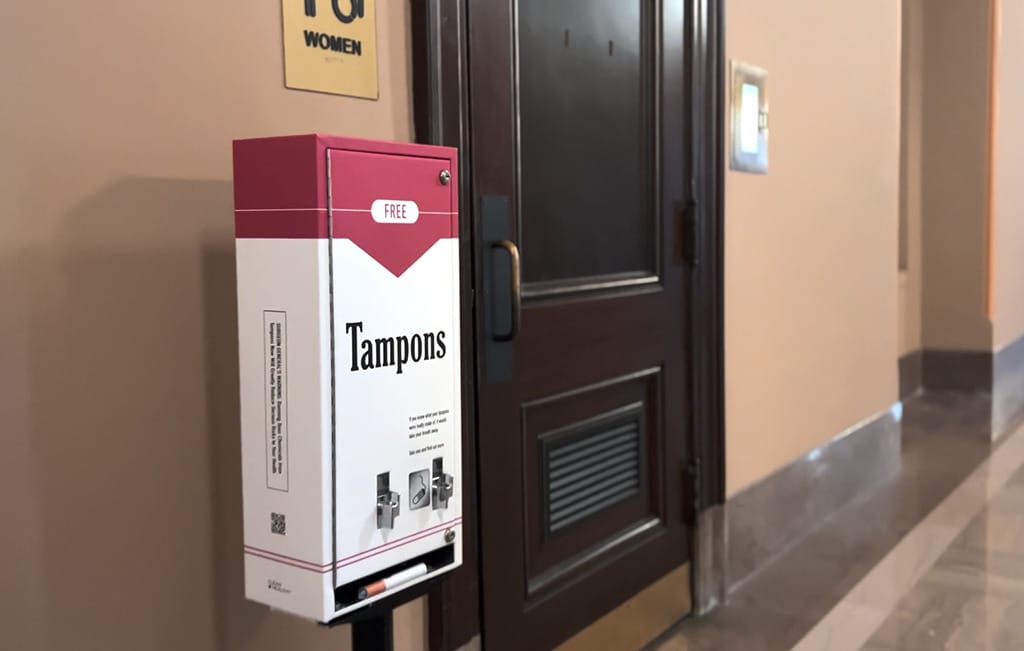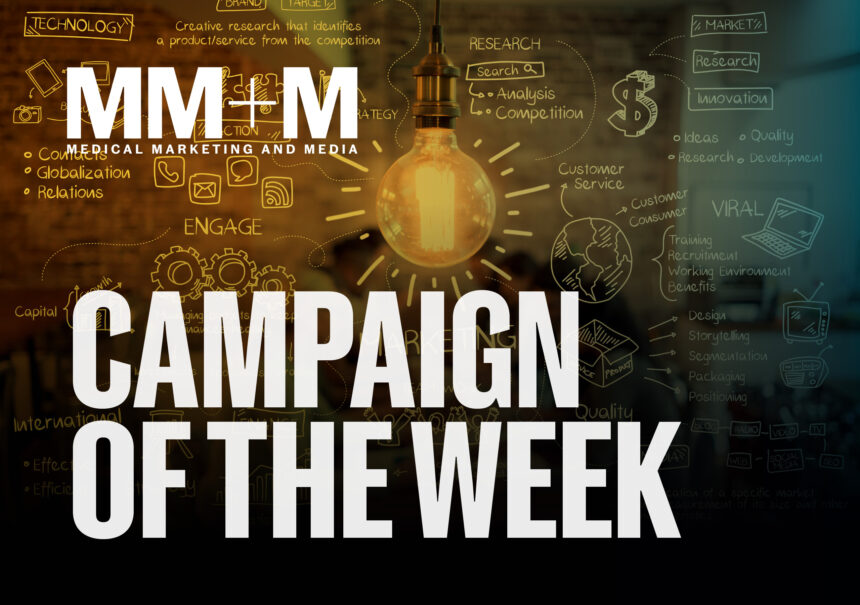By one estimate, people who menstruate will spend up to 84,000 hours actively on their period during their lifetime.
Troublingly, the products they turn to over that significant period of time are often contaminated with toxic chemicals, like formaldehyde, PFAS (polyfluoroalkyl substances), lead and mercury.
These are chemicals that are also found in cigarettes, pesticides, insecticides and even dynamite. All have been shown to contribute to a range of health issues including reproductive challenges, weakened immune systems and even cancer.
If that information comes as a shock to you, FCBCure, a 2023 MM+M Agency 100 honoree, had a similar initial reaction.
After learning about the problems, the agency decided to partner with Clean + Healthy, a New York State-based advocacy group focused on environmental health, to bring the Toxic Tampons campaign to Albany in a bid to persuade New York legislators to ban PFAS and other toxic chemicals in menstrual products.
At the heart of the effort is the Toxic Tampons website, where visitors can sign a letter in support of the proposed legislation. Among the campaign’s other activations was the placement of tampon dispensers — with toxin-free products — in the state capital building.

For Bobbi Wilding, founder of Clean + Healthy, the collaboration with FCBCure provided an opportunity to more effectively communicate their message, with a partner who shared their evidence-based approach.
“At Clean + Healthy, we are focused on building a just and healthy world where toxic chemicals are unthinkable,” Wilding says. “When FCBCure approached us with an arresting campaign messaging idea that aligned with the science, we were excited about that direct overlap in terms of how we approach talking about these issues. What they created is so beautiful. We’re a small nonprofit; so having that kind of focused attention on this campaign is so important.”
Tampon issues in your face
Beautiful may be in the eye of the beholder in this case.
Among the most striking elements of the website are cockroaches that scurry across its pages, with dead ones lying legs up next to a toxic tampon.
Wilding also notes that FCBCure’s print ads drawing connections between the toxins in tampons and those in cigarettes – best exemplified with a tampon smoldering in an ashtray – were especially effective at getting the attention of legislators.

The tampon machines that the campaign placed in the halls of the New York Capitol also made the same connection. They were designed to resemble packs of cigarettes, though the tampons that they were stocked with were, of course, toxin-free.
Debra Polkes, managing director/creative lead at FCBCure, explains part of what the agency was able to contribute to the partnership by bringing the facts to life in a way that pulls people in and gets them to engage.
“Nonprofits and issues like this don’t always get the creative impact that is needed to pull people to actually put pen to paper,” she says.
Legislative battles remain
While the legislation that would ban these chemicals passed the New York State Senate unanimously, it must still be debated in the Assembly.
Wilding hopes that the adoption of a ban by New York will, effectively, lead to the elimination of toxins from menstrual products in all 50 states as manufacturers reformulate their products to comply with the requirements of one of the country’s most populous states.
“So goes New York, so goes the rest of the country,” Polkes adds. “It’s that kind of momentum that we’re helping to drive and this is what it takes to get change done. Sometimes it is from the ground up.”
She sums up the goal of this particular campaign, in New York and beyond: “People are in a toxic relationship with these intimate products and we want to end that.”
Wilding sees the lessons of this campaign as extending beyond the specific issue of toxins in menstrual products.
“Campaigns like this help make people ask questions,” she says. “They are important in a broader sense so that people think more critically about what might be in other products, which helps us to create necessary systems changes.”
To read a July 2024 article on TikTokers reacting to a ‘toxic tampons’ study, click here.







